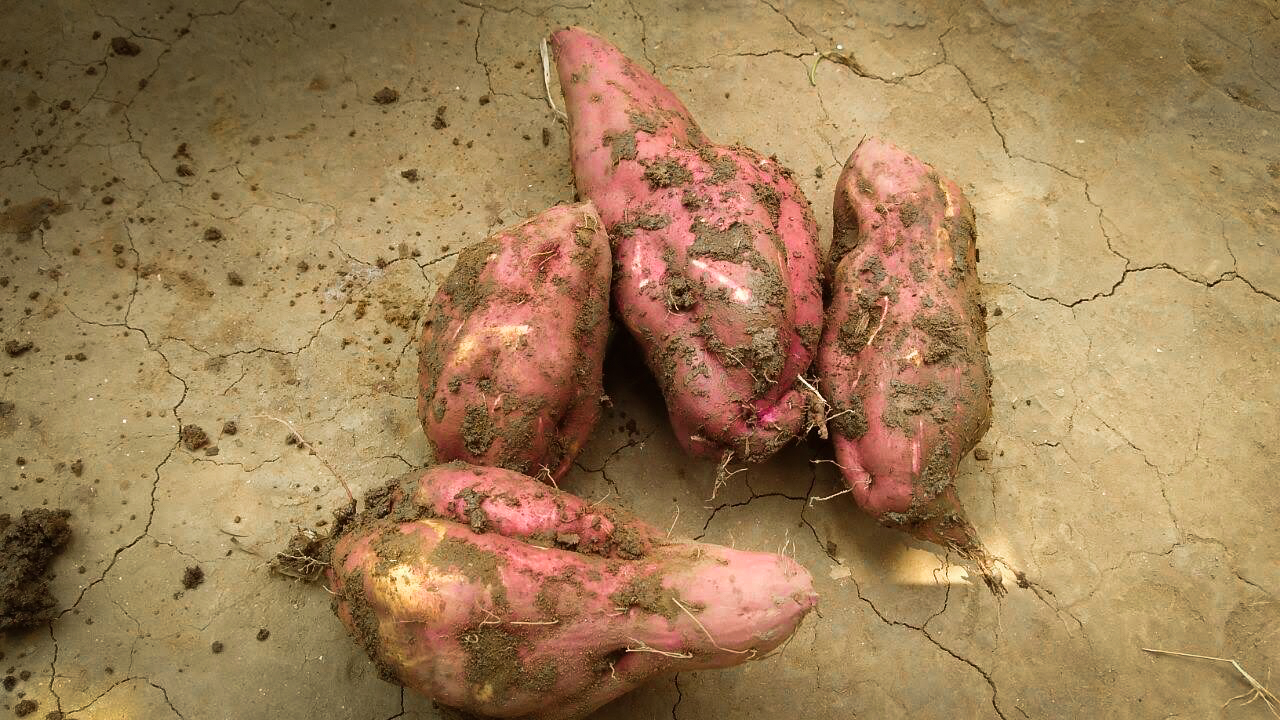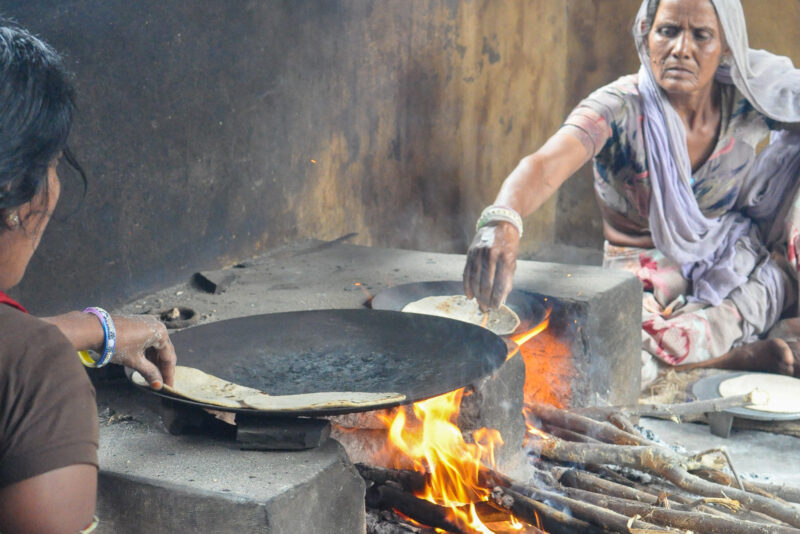Sweet Nutrition: Addressing Micronutrient Deficiencies through Orange-Fleshed Sweet Potatoes

In this piece from the TCI 2019-20 Annual Report, TCI scholar Kathryn Merckel’s research on the introduction of vitamin A-rich orange-fleshed sweet potatoes is presented. Download the full annual report to read more.
The Indian food system’s heavy focus on staple grains, like rice and wheat, combined with stubbornly high poverty rates, leaves many people’s diets lacking important nutrients like vitamin A, which plays an important role in eye, lung, and immune system functions. TCI is working to address vitamin A deficiency through the cultivation and consumption of vitamin A-rich orange-fleshed sweet potatoes. These efforts show that, with adequate education and institutional investments in developing varieties suitable for the region, the crop has the potential to catch on with producers and consumers.
Led by scholar Kathryn Merckel, TCI embarked on a project in Uttar Pradesh to improve diet diversity in mothers and children through the introduction of orange-fleshed sweet potatoes, along with educational messages for parents on proper diets for young children. Data collected in the region before the project began suggests that children may not be eating diets adequate in vitamin A. Fewer than 2% of parents reported their children had received vitamin A supplements in the past year, and knowledge about healthy diets was observed to be lacking, with only 7% of parents reporting that they thought fruits or vegetables were good foods for infants.
Working with TARINA Consortium partner Grameen Development Services, TCI provided farmers with training on how to cultivate orange-fleshed sweet potatoes. Vines were provided to those who wished to try growing the potatoes, and simple messages about health and diet were discussed during the monthly trainings. Half of the villages included in the study were randomly selected to also receive monthly, intensive educational programming on nutrition, with messages designed to target the most common troubles that parents experienced when trying to ensure that their children ate healthy, age-appropriate foods.
Previous research in East Africa has shown that projects, which introduced orange-fleshed sweet potatoes without intensive education, were as effective as those with the education component, in terms of increasing vitamin A intake. However, since the crop is new to North India, it was not known how important the education component would be to promoting acceptance of the food. Findings from the study indicate that parents in villages that did not receive intensive nutrition education learned valuable information about the health benefits of orange-fleshed sweet potatoes and proper child feeding, just as well as in villages that did.

TCI scholar Kathryn Merckel examines some sweet potato vines. (Photo courtesy of Kathryn Merckel)
Compared to control villages that received no intervention at all, parents in either set of intervention villages could name, on average, one additional strategy to improve children’s health, such as providing a diverse diet, at the end of the study. The percentage of households in intervention villages that reported being aware of vitamin A jumped from 10% to 27% over the course of the study, while control villages saw no change. At the end of the study, respondents who had heard of vitamin A could list an average of one-and-a-half more food sources rich in vitamin A than respondents at the outset.
Nearly every respondent in intervention villages had heard of orange-fleshed sweet potatoes by the end of the study, and 85% of households in both sets of intervention villages reported that they would buy them if they were available in their market.
Despite these increases in knowledge about healthy diets and interest in eating the sweet potatoes, cultivation of orange-fleshed sweet potatoes faltered after the first year of the intervention. Farmers were accustomed to using their land to grow cereal grains and were not willing to allocate sufficient space to successfully grow sweet potatoes. Climate change has led to periods of severe flooding and drought in the region, making preservation of vines difficult from season to season.
Setbacks aside, this study demonstrates potential for orange-fleshed sweet potatoes in the region. Many households reported enjoying the taste of sweet potato leaves, which are edible and rich in vitamin A. Price premiums were attractive to farmers wishing to sell tubers in the market, provided that customers were educated about their health benefits.
Future interventions with orange-fleshed sweet potatoes will require varieties better suited to the North Indian agroclimate, continued parental education about the importance of vitamin A-rich foods for children’s health, and ongoing promotion of the agricultural and nutritional benefits of the crop.





